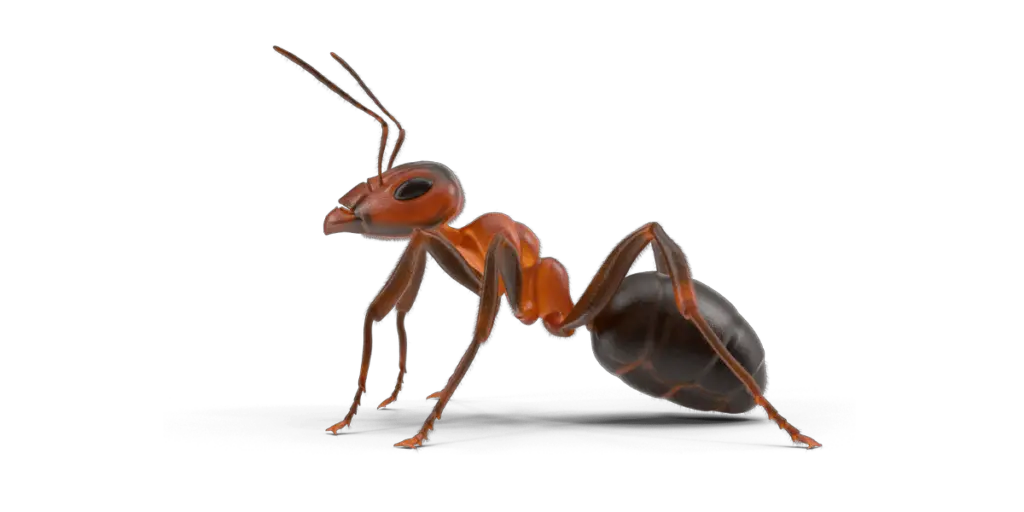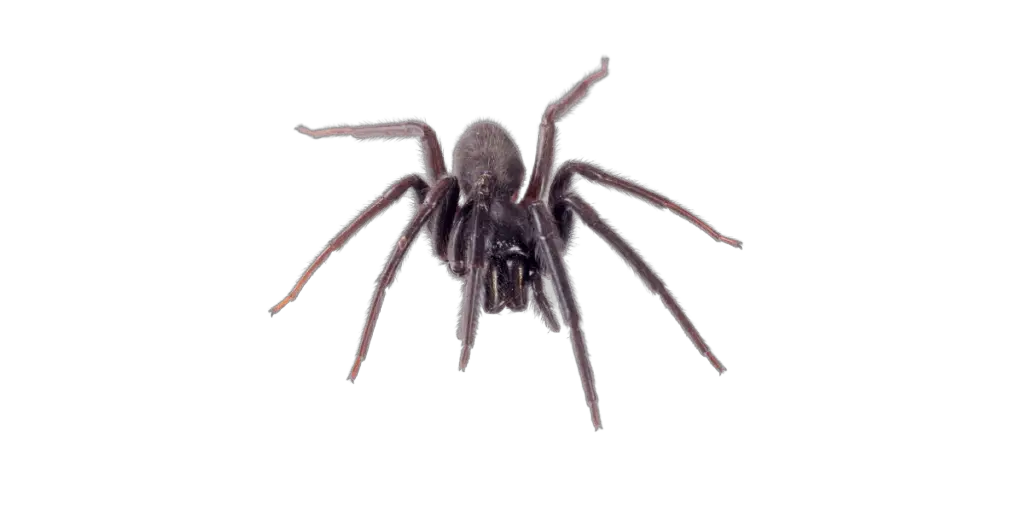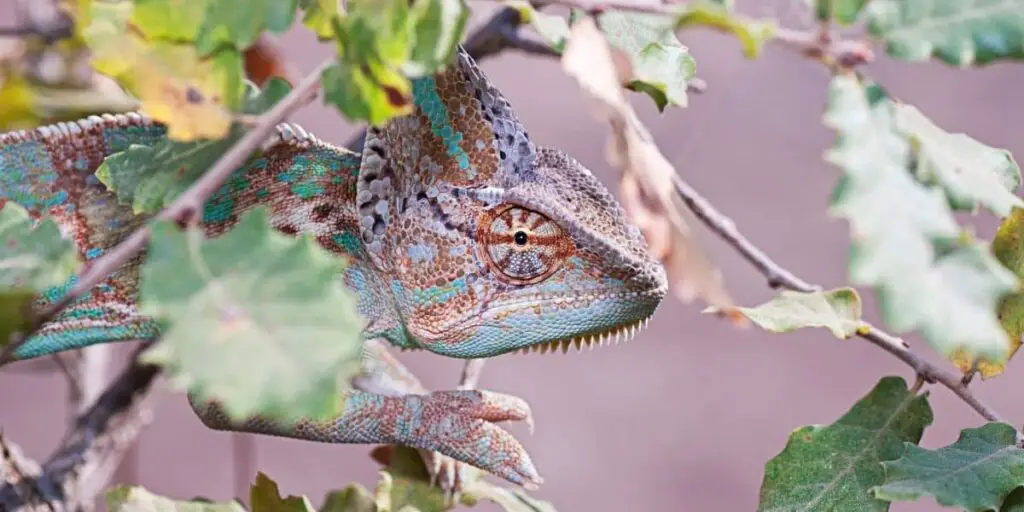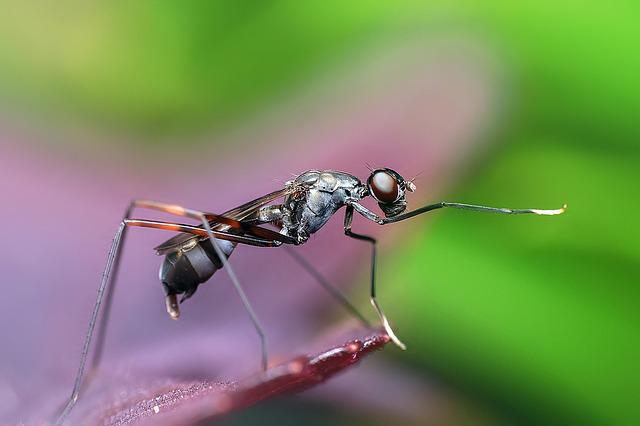Chameleons are a popular exotic pet owing to their ability to change color; this is a huge draw but if you have been considered getting a chameleon purely, for this reason, we must advise you that these animals will only thrive with the right care and attention.
When taking care of a chameleon, one of the most important things to make sure of is that the animal has a nutritious diet.
In this wild, the chameleon will eat a variety of foods including stick insects, grasshoppers and other insects as well as small birds and lizards for the larger specimens.
Of course, when you keep a chameleon in captivity, you want to make sure that you replicate its natural diet as closely as possible. But can you give your chameleon things like plants, spiders, and ants?
In a variety of cases, chameleons may accept spiders and ants as part of their diet, although these shouldn’t be staple foods. They may also be a source of irritation and potentially deadly, depending on the species. However, since these lizards are insectivores, many won’t be interested in eating plants. That said, there are some species of chameleon that may include a few plant-based options in their diets, such as the veiled chameleon.
Can Chameleons Eat Ants?
Chameleons eat a variety of insects but when they are in the wild, they typically wouldn’t opt for ants.
This is largely because ants contain high levels of formic acid which can give them a bitter taste, especially when compared to other creepy crawlies.
Most pet owners find that when they offer ants to their chameleon, they aren’t too well received. But…and there is a big but…
…there are a lot of people who have had success in getting their chameleon to feast on a batch of ants, so it would seem that it is mostly down to the taste of the individual and of course, the type of ants on offer.

One thing you should never do is feed fire ants to your chameleon. These ants will inject tiny bits of venom into the chameleon which will ultimately lead to its death.
Moreover, if you put ants into your pet’s tank and they show no interest in eating them, there is a good chance that the ants will serve as nothing more than an annoyance to your chameleon.
They may bite and irritate the animal but there are also stories that a few ants may help to keep the tank clean. In any case, we wouldn’t suggest offering ants as a staple food but if your chameleon gets its chops around some, in most cases, they won’t cause any harm.
Can Chameleons Eat Spiders?
If you own any type of exotic pet and have a fear of spiders, one of the first things you might think about is whether your pet will help in the battle against these eight-legged creatures.
There has been a lot of online discussion about chameleons and spiders and many people are now raising spiders for the sole reason of feeding them to their pets.
Now, it goes without saying that you should never offer a poisonous spider to your chameleon as it could bite and kill your pet.
If you live in an area where poisonous spiders are likely to enter the home, we would advise securing your tank to avoid unwanted intruders.

However, non-venomous species are suitable for chameleons and there is a lot to suggest that they really enjoying feasting on these creatures.
If you are going to go down this route, there are a variety of ways you can purchase specially raised spiders or start your own colony.
It is also important to avoid sourcing spiders from around the home and garden. The reason for this is that these creatures may have parasites that could then be transferred to your pet.
There has been a lot of speculation online that venomous spiders, when eaten by chameleons, could kill internal parasites.
While we have no solid evidence to either prove or disprove this theory, there is still the concern that your chameleon is at risk of being bitten, so again, we must urge you to avoid providing poisonous spiders and other insects.
Can Chameleons Eat Plants?
When you think about a chameleon, you think about an animal that eats a meat-based diet, and there is a good reason for this.
These animals are what are known as insectivores, meaning that they primarily feed on insects and invertebrates.
As we mentioned earlier, there are some larger chameleons that might go for other small lizards and birds but for the most part, it is an insect feast at every meal.
That said, there are plenty of owners who have offered chameleons a selection of fruits, vegetables and leaves and seen huge success.

But are these foods nutritionally beneficial to your pet? Probably not, but they likely won’t do much harm, provided the plants are not poisonous.
There have been a lot of stories of veiled chameleons having a plant-based meal. These are one of the three main types of chameleon that are kept as pets, the other being the Jackson chameleon and the panther chameleon.
If your veiled cham seems to like nibbling on leaves, then it isn’t a problem, just make sure you stick to the following options:
- Mustard green
- Endive
- Collard greens
- Hibiscus
- Dandelion greens
- Escarole
- Turnip greens
In addition to this, you may want to offer a selection of vegetables to your chameleon which could include carrots, squash, zucchini, sweet potato, red peppers, cucumber, and watercress.
They can also eat a variety of fruits including strawberry, pear, melon, apple, mango, grapes, raspberries and blackberries.
There are some fruits and vegetables that are not suitable for chameleons and should never be offered due to their toxic nature. These include apricots, cabbage, fig, iceberg lettuce, and spinach.
Conclusion
Chameleons are largely insect eaters and so spiders and ants can form part of their diet. That said, owners must pay special attention to the type of spiders or ants that they are offering since many can be poisonous and there is a risk of them biting and killing the chameleon.
While these animals tend to go for insects, veiled chameleons have been widely known to enjoy a variety of plant-based foods such as leaves, fruits and vegetables.
Be sure to keep in mind that some fruits and vegetables are toxic to your pet and should be avoided at all costs.




